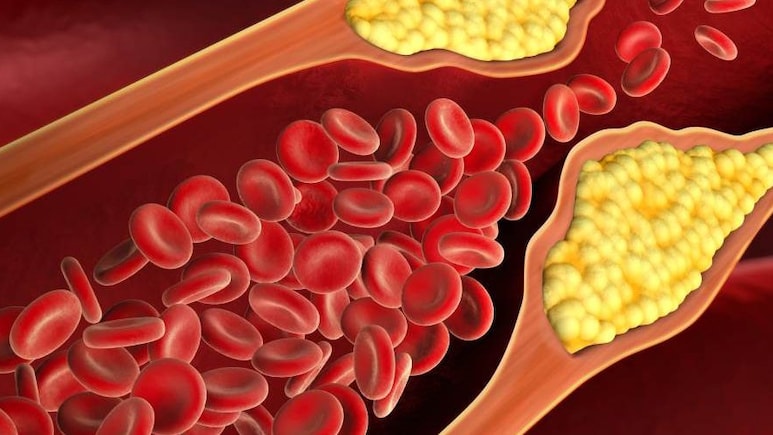
Maintaining healthy cholesterol levels is crucial for overall cardiovascular health. Cholesterol is a waxy substance found in the blood. While your body needs it to build cells and produce certain hormones, excessive cholesterol in the blood can lead to plaque buildup in the arteries. This condition, known as atherosclerosis, can increase the risk of heart disease, heart attacks, and strokes.
Diet plays a significant role in managing cholesterol levels. Foods that are high in saturated fats, trans fats, and cholesterol can raise the levels of LDL (low-density lipoprotein), often referred to as "bad" cholesterol. Conversely, certain dietary choices can help raise HDL levels (high-density lipoprotein), also known as good cholesterol. Most individuals solely rely on dietary changes as soon as their blood reports indicate unhealthy amounts of LDL. However, can diet alone help improve cholesterol? Let's find out.
Can diet effectively lower cholesterol?
While diet is crucial for promoting healthy cholesterol, it might not be sufficient for everyone. Some individuals may have genetic predispositions that affect their cholesterol levels, meaning that dietary changes alone might not be enough to achieve optimal levels. In such cases, medication may be necessary in conjunction with diet and lifestyle changes.
"Diet contributes greatly to your cholesterol improvement, but tends to be most effective when combined with other lifestyle changes. For many people with mildly elevated cholesterol, a heart-healthy diet can result in improvement within a few months. Increased consumption of essential foods that are high in fibre, including whole grain foods, fruits, vegetables, legumes, and nuts, aids in cholesterol reduction through evidence-based improvements in LDL or 'bad' cholesterol. Changing saturated fats to newer fats is an added support for healthy lipid levels and may be found in olive oil, avocados, and fatty fish," explains Ms Pooja, Nutritionist at Fortis Hospital, Cunningham Road, Bengaluru.
"Diet may not be enough for some; it is important to recognise that individual factors play a role in how well a specific diet works. Things like genetics, age, weight, pre-existing conditions, and overall metabolism are just some of the items that impact how well the body responds to a new diet. In cases of truly high cholesterol levels and patients with additional cardiovascular risk factors, medication may be needed in addition to creating lifestyle changes," Ms Pooja adds.
Some tips to maintain healthy cholesterol levels:
1. Eat a heart-healthy diet: Focus on whole foods, including fruits, vegetables, whole grains, lean proteins, and healthy fats.
2. Stay active: Aim for at least 150 minutes of moderate aerobic activity each week, like brisk walking or cycling, to help improve cholesterol levels.
3. Maintain a healthy weight: Losing even a small amount of weight can help reduce LDL levels and improve overall heart health.
4. Limit alcohol intake: If you drink alcohol, do so in moderation, as excessive drinking can lead to high cholesterol levels.
5. Quit smoking: If you smoke, quitting can improve your HDL cholesterol levels and benefit your heart health.
A heart-healthy diet can significantly improve cholesterol levels, especially when combined with regular exercise, good sleep, and stress management. However, since genetics and health conditions also play a role, some people may need medication alongside lifestyle changes. A balanced, sustainable eating pattern is key to long-term heart health.
Disclaimer: This content including advice provides generic information only. It is in no way a substitute for a qualified medical opinion. Always consult a specialist or your own doctor for more information. NDTV does not claim responsibility for this information.
Track Latest News Live on NDTV.com and get news updates from India and around the world

